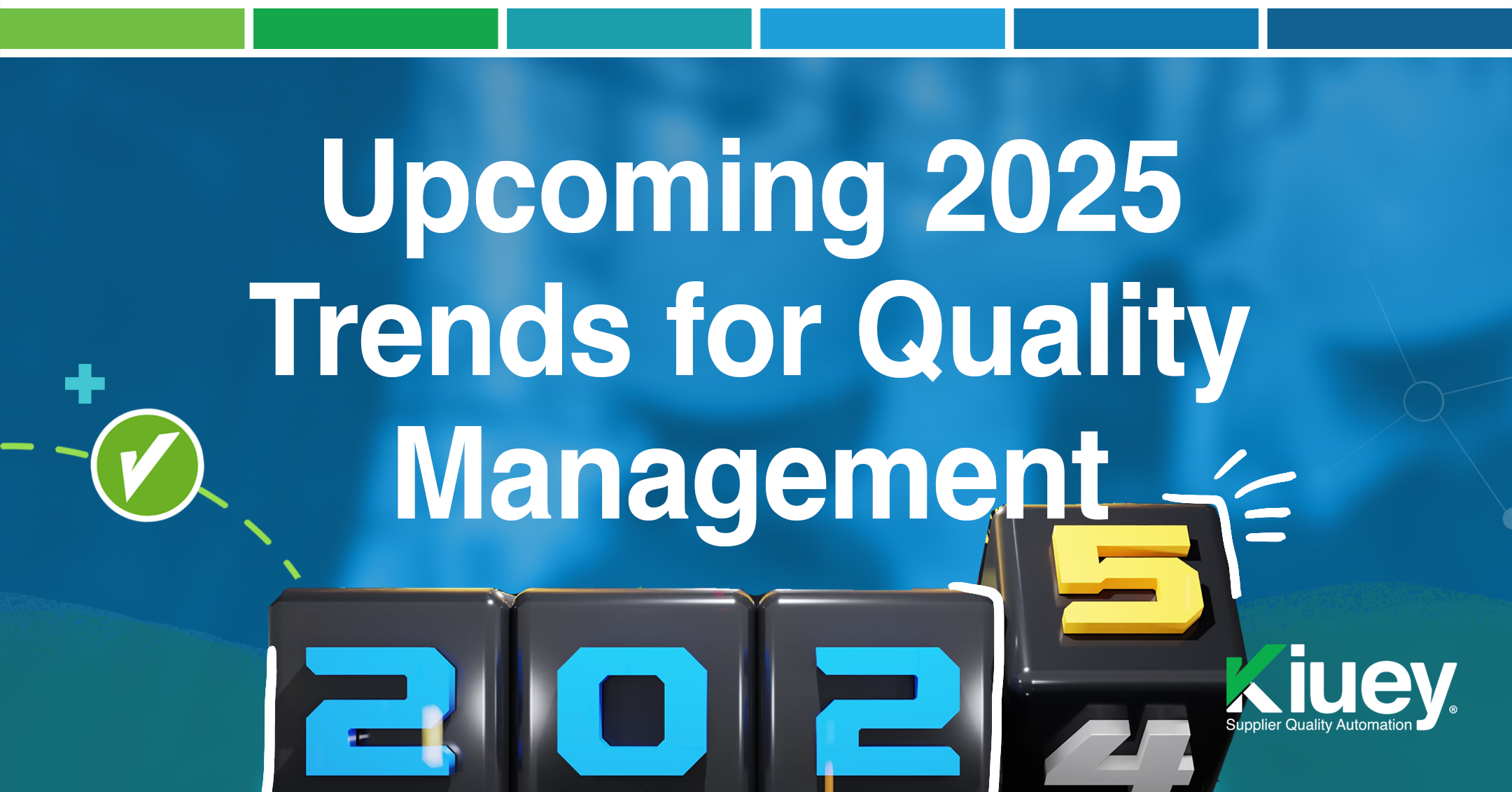
Upcoming 2025 Trends in Quality Management
The landscape of supplier quality engineering is rapidly evolving. In 2025, the focus shifts towards proactive risk mitigation, data-driven decision-making, and leveraging advanced technologies.
Quality 4.0, an extension of Industry 4.0 principles, empowers suppliers to enhance quality management through AI, machine learning, IoT, and big data analytics. This article explores how Quality 4.0 trends will impact supplier quality engineers in 2025 and beyond.
Key Trends for Supplier Quality Engineers in 2025
- Proactive Risk Management: Predictive analytics, powered by AI and machine learning, will enable proactive identification and mitigation of potential quality issues. By analyzing historical data, supplier performance trends, and external factors, engineers can anticipate and prevent problems before they occur.
- Data-Driven Decision Making: Real-time data collection from various sources, including supplier systems, production lines, and customer feedback, will be crucial. Analyzing this data will provide valuable insights into supplier performance, identify areas for improvement, and inform strategic decisions regarding supplier selection and management.
- Enhanced Supplier Collaboration: Cloud-based platforms will facilitate seamless communication and collaboration between buyers and suppliers. Real-time data sharing, automated notifications, and integrated communication tools will streamline interactions and improve transparency.
- Focus on Sustainability: Environmental and social responsibility are increasingly important. Supplier quality engineers will play a vital role in ensuring that suppliers adhere to sustainability standards and demonstrate responsible sourcing practices.
- Cybersecurity: As more and more quality management processes become digitized, cybersecurity becomes paramount. Protecting sensitive data and ensuring the integrity of systems will be a critical responsibility.
Leveraging Technology for Success:
- AI-powered Quality Gates: Implementing AI-powered quality gates can automate inspections, identify defects with greater accuracy, and reduce reliance on manual checks.
- IoT-enabled Monitoring: IoT sensors can be used to monitor real-time production data, track key performance indicators, and detect anomalies that may indicate potential quality issues.
- Blockchain Technology: Blockchain can enhance transparency and traceability within the supply chain, ensuring the authenticity and quality of materials and products.
Preparing for the Future
To thrive in this evolving landscape, supplier quality engineers must:
- Develop Data Analytics Skills: Acquire the necessary skills to analyze data, interpret results, and make data-driven decisions.
- Embrace Digital Transformation: Stay abreast of the latest technologies and explore how they can be applied to improve quality management processes.
- Foster Strong Supplier Relationships: Build collaborative relationships with suppliers based on trust and transparency.
- Prioritize Continuous Learning: Continuously update knowledge and skills to stay ahead of the curve in this rapidly changing field.
Conclusion
Quality 4.0 presents both challenges and opportunities for supplier quality engineers in 2025. By embracing these trends, leveraging advanced technologies, and developing the necessary skills, engineers can play a pivotal role in driving continuous improvement, enhancing customer satisfaction, and ensuring the long-term success of their organizations.
Subscribe to our newsletter.
Your go-to destination for insights, best practices, and innovative solutions in supplier quality assurance.
Categories
Let's talk to see how PPAP Manager can help your company to save time and money.




